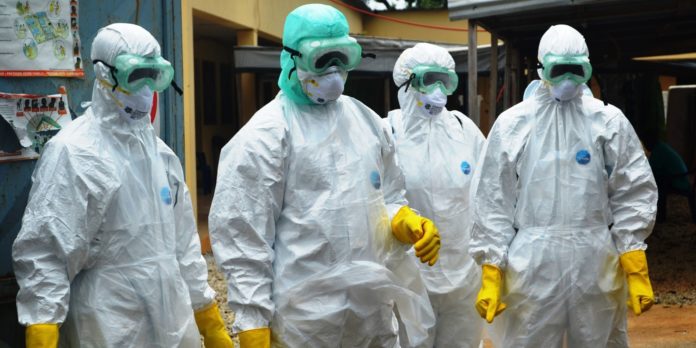The exam’s Comprehension Text
[1] Today, everyone is talking about the Ebola disease that is spreading across West Africa. It kills many people every day, including volunteer workers and doctors who are treating their patients.
[2] Ebola is one of the world’s deadliest diseases, with up to 90% of cases resulting in death. It is thought to have infected more than 23,800 people, almost all of them in West Africa – Sierra Leone, Nigeria, Liberia and Guinea. According to the World Health Organisation (WHO), the number of death cases reached 9,652 in February 2015. Some patients in Liberia have taken an experimental anti-Ebola drug, called ZMapp. Medical experts say that the drug has helped several patients feel better, but nothing is sure yet.
[3] Ebola is spread among humans through direct contact with infected body fluids. However, it is not transmitted through air breathing. Symptoms of the virus include a sudden high fever, a headache, a sore throat, intense weakness, muscle pain, bleeding and central nervous system damage that lead to painful death. Patients need to be taken care of so that the disease doesn’t spread to members of the family. Even after patients are dead, their clothes must be burned because the virus can stay hidden in them for a while.
[4] Many African countries have taken preventive measures to stop the spread of the disease. In Liberia, for example, authorities have isolated all patients in areas where the disease is spreading. Senegal, too, has closed down its land border with its neighbour Guinea.
[5] Many foreign nationals have left countries that have Ebola. Some world sporting and cultural events were cancelled in order to avoid the spread of the disease. The tourist industry in West African countries is severely affected because many world air companies have cancelled their flights.
[6] Health officials say that the disease is spreading so quickly that it is turning into an epidemic. They recommend cleaning hands and avoiding direct contact with infected people. Although there is actually no cure for the disease so far, there is still hope that an effective drug will be developed soon.
Adapted from: www.newsflashenglish.com
National exam | Scientific Streams | Catch-up Session 2015 with Answers





